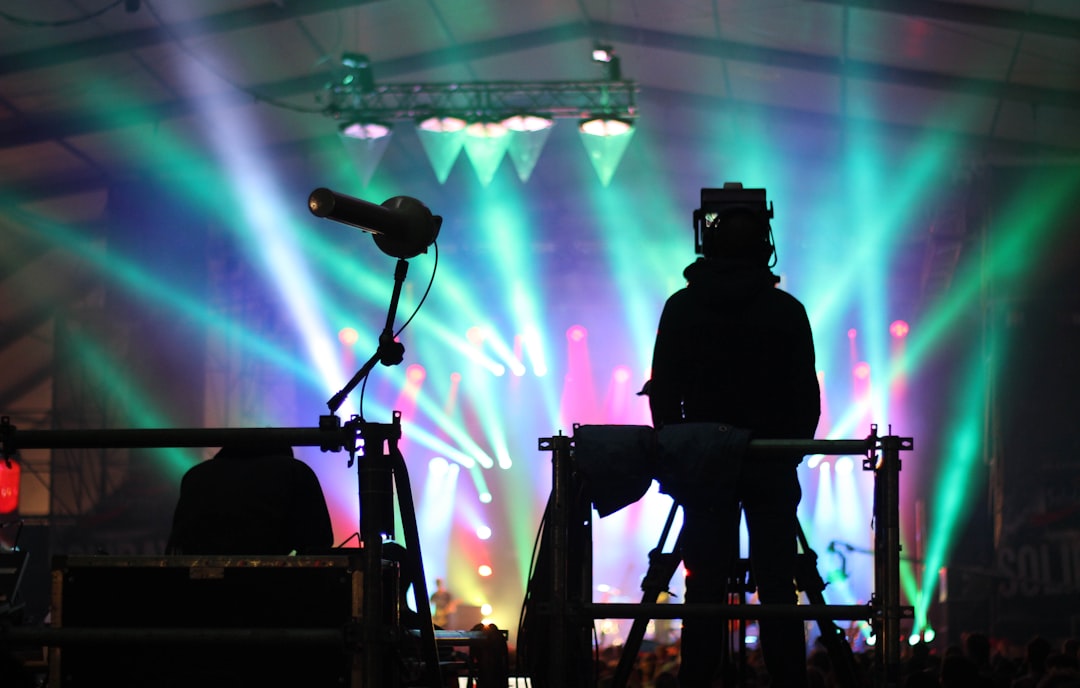Lighting Technician Kaihangarau Rama
Lighting technicians set up and operate lighting equipment to provide light and special lighting effects in theatres, at events, and for film and television productions.
Lighting technicians may do some or all of the following:
- select and set up lights and equipment
- light each scene in television, film and stage productions
- operate the lights during performances, concerts, and events
- maintain and repair lighting equipment
- set up frames and scaffolding for lighting rigs
- consult with the event manager, director and camera operator to assess what lighting is required for an event, show or scene.
Physical Requirements
Lighting technicians need to be reasonably fit and strong as they often work long hours with few breaks, be able to climb up rigging and carry heavy equipment. They also need to have good hearing and normal colour vision.
Useful Experience
Useful experience for lighting technicians includes:
- working backstage in theatres
- working for a lighting hire and supply company
- computer or electrical work
- photography
- work in the entertainment industry
- production work in film or television.
Personal Qualities
Lighting technicians need to be:
- practical and accurate
- well organised, with good planning skills
- able to work well under pressure
- reliable
- able to work well in a team
- strong problem solvers.
Skills
Lighting technicians need to have knowledge of:
- how to use lighting equipment
- lighting special effects
- heath and safety requirements and procedures
- technical skills, including electrical knowledge
- the filming process and different camera techniques if working in film or television.
Conditions
Lighting technicians:
- may work long and irregular hours, including evenings, weekends and public holidays
- work in theatres, on television and film sets, and at a variety of venues for corporate functions, outdoor events and concerts
- may travel between venues and locations depending on the type of work they do.
Subject Recommendations
There are no specific secondary education requirements to become a lighting technician. However, English, maths, physics, design and visual communication (graphics) are useful.
Related Subjects
Lighting Technicians can earn around $23-$27 per hour.
Pay for lighting technicians varies depending on experience and the type of industry they work in.
- Lighting assistants usually earn between $36 and $40 an hour.
- Generator operators usually earn between $40 and $45 an hour.
- Best boys/girls usually earn between $50 and $52 an hour.
- Gaffers usually earn between $55 and $70 an hour.
Pay for lighting technicians working for lighting companies at events varies with experience.
- Entry-level event lighting technicians usually start on minimum wage.
- Experienced event lighting technicians can earn up to $27 an hour.
Sources: The Screen Industry Guild of Aotearoa New Zealand; Professional Lighting Services; Gravity Events, 2018.
Lighting technicians may progress to become production managers, or move into camera operator or director of photography roles. Lighting technicians may specialise in lighting for events, film, television or theatre.
Within the film and television industry, lighting technicians may specialise in the following roles:
- Lighting Assistant
- Lighting assistants set up lights under the instruction of a senior lighting technician or gaffer.
- Generator Operator
- Generator operators look after the generator, ensuring it runs smoothly to power the production lights. They also help the gaffer and move lights.
- Best Boy/Girl (Lighting)
- Best boys/girls order lighting requirements in consultation with the production department and work out the lighting budget with the gaffer.
- Gaffer
- Gaffers organise the lighting team and work with the director of photography and director to get the artistic lighting required.
Years Of Training
There are no specific entry requirements to become a lighting technician as skills are usually learned on the job as an assistant lighting technician. However, it can be useful to have a tertiary qualification in television, video or film and to have completed safety training for working at heights.
Some employers may require you to have a Class 2 driver's licence.

 Bethlehem College
Bethlehem College